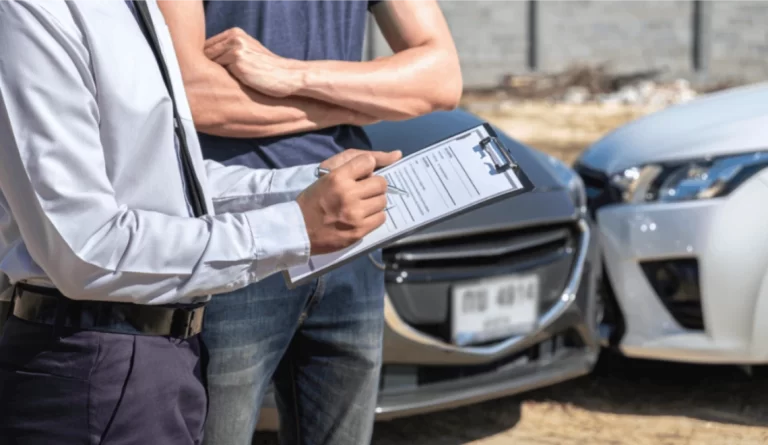Generally speaking, car accidents cases rarely go to court. Most claims are resolved through negotiation outside of the judicial process. For this reason, it’s important for an injury victim to retain an experienced New York car accident lawyer with the high-level negotiation acumen who can cross the finish line with a win, although sometimes a settlement may emerge only after the legal papers are formally served on the at-fault party or parties.
If an out-of-court compromise cannot be achieved (i.e., the parties at crunch time are still in disagreement regarding the amount of compensation owed to the injury victim) a trial may be required. A competent attorney can guide you in determining whether going to trial is the appropriate course of action in your particular case.
What Happens If Car Accident Claims Don’t Go To Trial?
In New York, a three-year statute of limitations applies to most personal injury claims with some exceptions.
That means that an injury victim must start legal action within three years of the date of the accident, otherwise the claim is no longer viable as a matter of law.
After the deadline for legal action passes, the claim’s shelf-life would have expired, and the car accident victim no longer has any ability under the law to seek compensation.
The good news is that by some estimates 90 percent-plus of car accident cases settle before the need arises to file any legal paperwork at the courthouse.
Why Most Car Accident Claims Are Settled Out Of Court
A trial, i.e., getting to a hearing before a judge and/or jury, can be expensive, time-consuming, and unpredictable.
And there are a lot of preliminaries required before your actual day in court.
For those reasons, it is often a win-win if both sides can reach a compromise on the measure of financial compensation.
Insurance companies also know that a trial outcome can be uncertain and costly, and that’s why they are often incentivized to settle.
However, if going to court is the best way to achieve the outcome you truly deserve, we are fully prepared to litigate on your behalf.
What Happens If My Car Accident Case Goes To Trial?
If you wind up taking someone to court for a car accident, you become the plaintiff.
Your attorney will file a formal written complaint that gives your side of the story, i.e., the facts and relevant law, the injuries, and a claim for monetary damages.
A process server will serve the complaint on the responsible party or parties (the defendant or defendants) as well as the submitting the paperwork at the courthouse, where it will be officially docketed.
From there, the court will schedule the case for further. proceedings, including as outlined below, various preliminary matters, such as discovery, pre-trial motions, a pre-trial hearing, and up to and including a trial.
When Do Car Accident Claims Go To Court?
Car accident claims intermittently go to court if or when the parties are too far apart in the settlement negotiations.
This becomes particularly relevant especially, as discussed above, if the statute of limitations is fast approaching.
Court Process In Car Accident Claims
Although time lines can differ as the litigation unfolds, the defendant’s lawyer must respond to the complaint within 20 days of personal service, or within 30 days of the time when service by any other means is complete.
The defendant’s lawyer also may file a petition to have the case thrown out (a motion to dismiss).
If the motion is denied, the discovery process then starts.
Depending upon the complexity of the case, discovery typically involves each side submitting questions for the other side to answer in writing
Parties, witnesses, and experts (medical or otherwise) may have to testify under oath in a lawyer’s office in front of a court reporter.
The latter is a trial run, so to speak, for the actual trial.
All this activity associated with the car accident court process may serve to further focus everyone’s attention on the strengths or weaknesses of the case toward a possible settlement.
In discovery, the parties may also be required to exchange documents that haven’t already surfaced.
Eventually, the court will schedule a pre-trial hearing, during which a judge will review the case with the attorneys and during the meeting will frequently encourage legal counsel to settle the case on behalf of their clients.
Rest assured that Spektor & Associates will never settle a case without discussing the parameters with you and obtaining your permission first.
If no settlement appears possible, the court will schedule a trial date, and you will likely have to testify at either a jury trial or a judge-only bench trial with all that entails.
Your attorney will thoroughly prepare you for that eventuality.
A trial could take several days or longer depending, e.g., on how much evidence needs to be presented in court about the scope of your injuries and as to who is at fault, and the number of witnesses that need to testify with all that in mind.
It’s hardly unusual, however, for car accident court cases to settle on the eve of trial or after trial proceedings have already commenced.
Do I Need an Attorney If My Accident Claim Will Probably Settle Anyway?
You can go it alone, but it is far preferable to have an experienced attorney in your corner to explain your legal rights, evaluate your case properly, and negotiate on your behalf.
You are also less likely to get the run-around from an insurance company that way.
Most Car Accident Claims Settle Out Of Court
While no car accident can be considered a routine matter, for all the reasons set forth above, a settlement might be an injury victim’s best option for obtaining compensation.
As a practical matter, it is hardly uncommon for an agreement to become possible.
Navigating and negotiating insurance claims can be a complex process even without a lawsuit, but Spektor & Associates is committed to protecting the rights of our clients every step of the way.
Who Decides If a Car Accident Case Goes To Court?
In general, the decision about initiating a court case for a car accident occurs after a sit-down between you and your personal injury lawyer to discuss your claim in all its dimensions, including your odds of winning there based on all the available evidence.
Obviously, if the insurance company or other responsible party, or the lawyers representing them, has made a fair settlement officer, it may be unnecessary to take legal action.
If your adversary insists upon a low-ball offer, a trial may be on the horizon.
The reasons for going to court especially for car insurance court cases may include a disagreement over who was liable for the accident or the degree to which more than one party may have been at-fault.
New York is a comparative fault/comparative negligence state which means you are potentially able to recover money damages even if it’s determined that you were partially at fault in the car accident.
A fundamental dispute over the evaluation of the damages, including compensation for severe injuries with long-lasting complications that require ongoing care, may also require a trial to sort out.
A looming statute of limitations deadline may also factor into the decision.
What If I Don’t Want To Go To Court For My Car Accident Case?
Although our society tends to be a litigious one, going to court for a car accident is understandably not everyone’s cup of tea.
If you’ve made it clear to your attorney that you’re not interested in suing, your lawyer will nonetheless work tirelessly to obtain the best possible outcome for you.
Sometimes, the mere involvement of a widely respected personal injury firm representing the victim will encourage a fair settlement.
If you entrust your claim to Gregory Spector & Associates, we will seek justice for you and your family by carefully evaluating your damages and aggressively seeking the compensation that you deserve.



